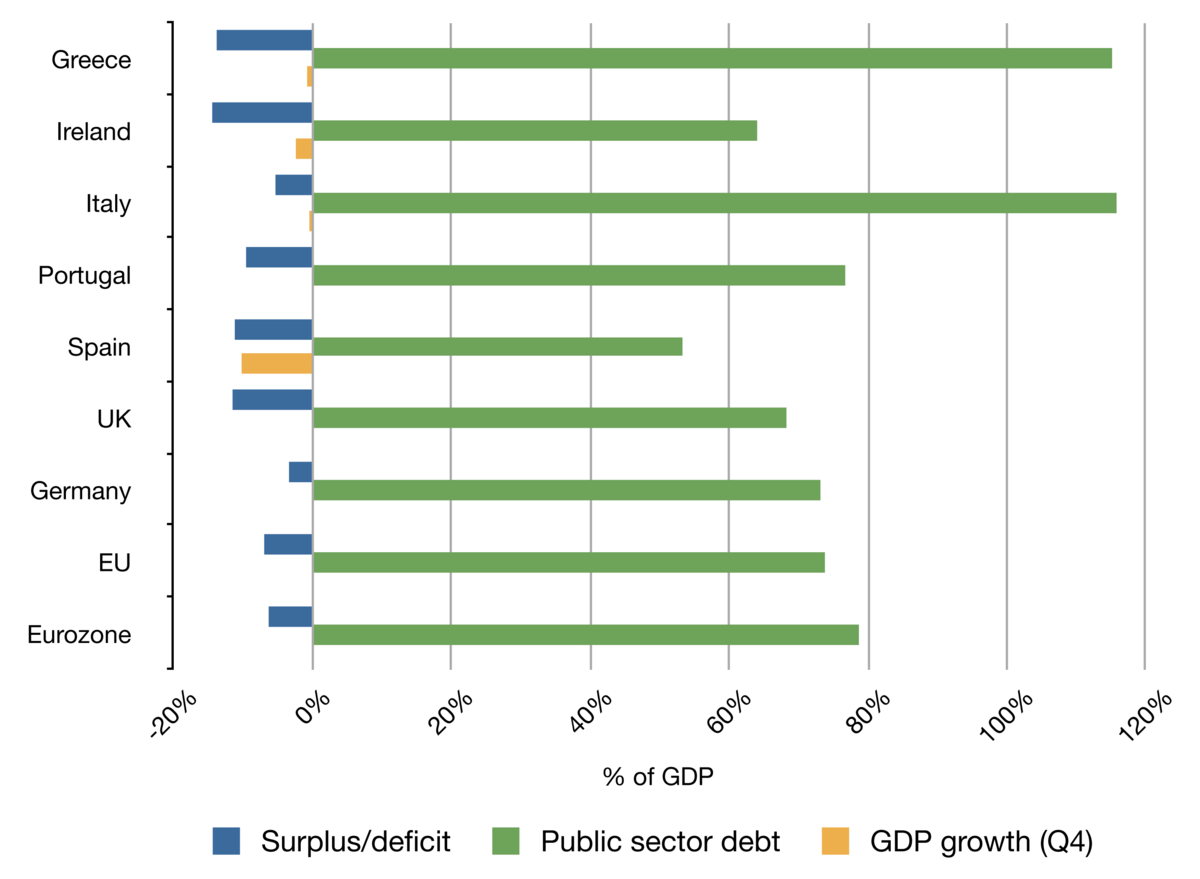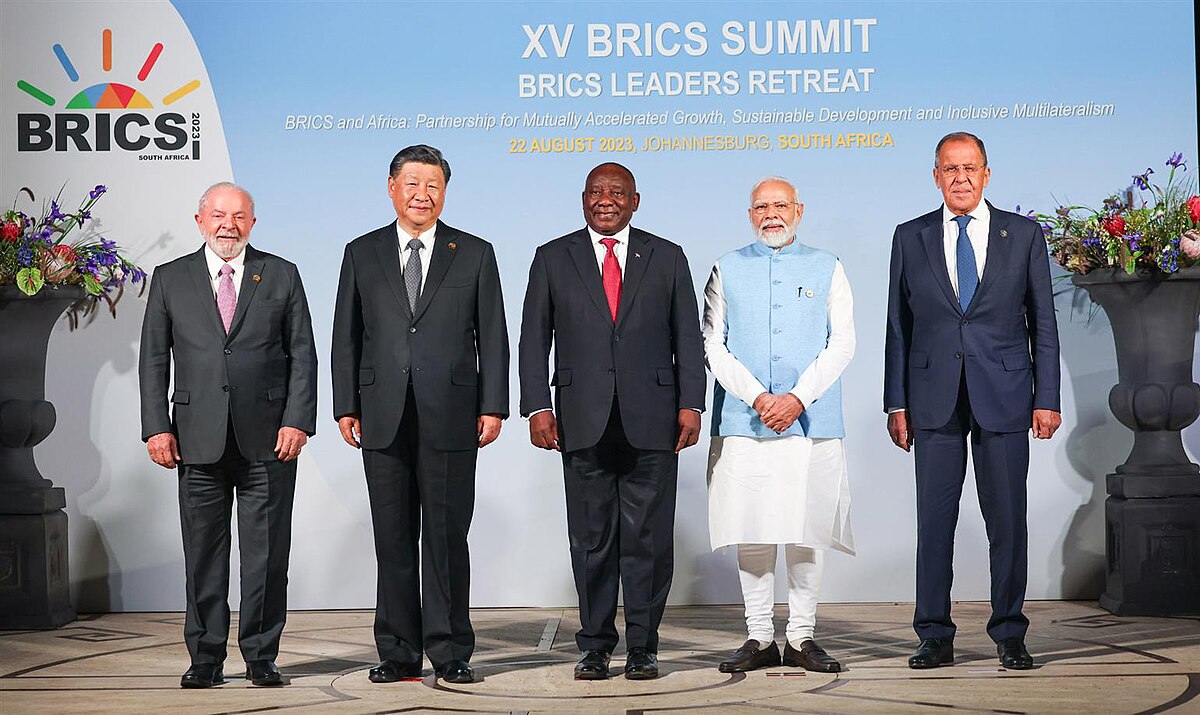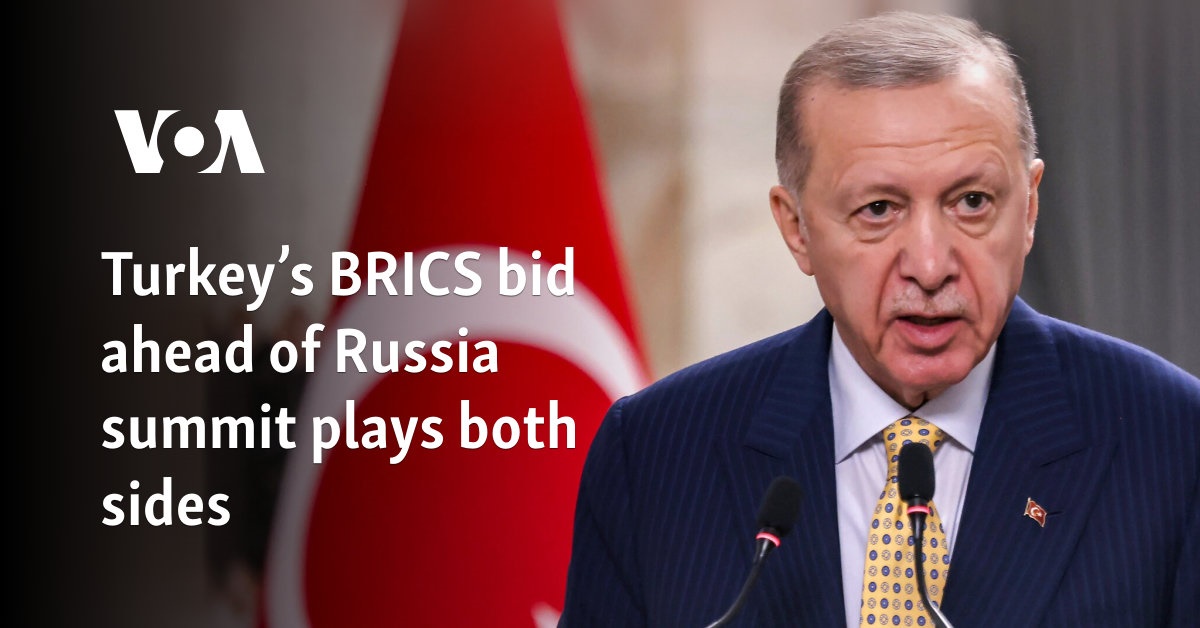Turkey’s BRICS bid ahead of Russia summit plays both sides
TEL AVIV —
Ahead of Russia hosting the 2024 BRICS Summit from Oct. 22-24, Turkey’s application to join the group of major emerging economies is coming under scrutiny.
The BRIC, or Brazil, Russia, India and China, platform was initiated by Russia in 2009 as an informal club to provide members with a conduit for challenging the world order dominated by the U.S. and its Western allies. South Africa joined in 2010, making them BRICS.
While analysts say Turkey’s membership bid is more about playing both sides than challenging its Western allies, some also voice concerns that Ankara is moving away from the West.
“Turkey’s BRICS bid is one more example of the country’s drift away from the Transatlantic community,” Asli Aydintasbas, visiting fellow at the Brookings Institution’s Center on the United States and Europe, told VOA Mandarin.
Turkey’s formal application last week for membership in the BRICS bloc of emerging economies confirmed speculation of the plan after the Kremlin in June welcomed “Turkey’s interest in the work of BRICS” and promised to support Ankara’s aspirations to join it.
Ankara’s move marks the first time a member of the North Atlantic Treaty Organization (NATO) and a candidate to join the European Union has applied to join a group dominated by Russia and China.
NATO is a political and military alliance of 32 countries created by the U.S. for collective security against the former Soviet Union. The body also serves as a medium for member-state consultation, cooperation, dispute resolution and crisis management.
BRICS aims to challenge the political and economic dominance of mainly Western, developed nations. Critics say it struggles to accomplish much and is uniting authoritarian and corrupt governments that seek to silence opposition.
In January 2024, Egypt, Ethiopia, Iran and the United Arab Emirates were formally added to the group.
“There’s a process of enlarging BRICS that China and Russia are engaged in,” Gallia Lindenstrauss, a fellow at the Tel Aviv-based Institute for National Security Studies Turkey Policy Research, told VOA Mandarin. “This bid announcement is directly tied to the
S-400 sales to Turkey, and it comes as a prelude to the upcoming October BRICS meeting in Russia.”

In 2020, the Trump administration slapped sanctions on Turkey for a $2.5 billion acquisition of the Russian S-400 missile system, which is said to pose a risk to the NATO alliance and to U.S. F-35 fighter jets.
Despite the Russian missile deal, Turkey still has clear differences with the BRICS members and summit host concerning Moscow’s war on Ukraine, a key NATO concern.
While most BRICS members have taken a neutral or Russia-leaning stance on Moscow’s invasion, Turkish President Recep Tayyip Erdogan last week expressed “unwavering” support for Ukraine's territorial integrity and said Russia must return annexed Crimea to Kyiv, prompting a mild rebuke from Moscow.
“Turkey is going through an anti-Western mood at the moment,” Aydintasbas says. “This is made worse by events in Gaza.”
Turkey, whose citizens are mostly Muslims, has been an outspoken critic of U.S. ally Israel’s fight against Hamas in Gaza. The conflict began after Hamas’ attack on Israel, which killed 1,200 and took as hostages 250 people. Israel’s counteroffensive in Gaza has killed more than 42,000 Palestinians, according to the territory's health ministry, which does not distinguish between combatants and civilians in its count.
Analysts say Turkey’s impatience over stalled negotiations to join the EU has also fueled its desire to form closer relations with BRICS. Ankara’s EU bid launched in 2005 has been delayed by concerns about its crackdown on Turkish opposition.
Muhdan Saglam, Ankara-based Russian Energy and Russia-Turkey relations commentator, told VOA Mandarin that Turkey’s BRICS bid is a way to show it has different faces — one for the East and another facing West.
“Erdogan is using this to show the West Turkey has alternatives,” Saglam explains. “But BRICS is not an alternative and Western authorities know that. It is important, though, because not one NATO member has applied for membership in a different organization. In this case, the political impact may be more important than economic or defense implications.”
But Saglam says the BRICS bid is also a means for facilitating deals with business partners like China.
BRICS member countries make up about 45% of the world’s population and 28% of the global economy. BRICS countries produce more than a third of the world’s crude oil. If Saudi Arabia joins the group, which it has indicated it may, BRICS nations would produce some 43% of global crude oil.
But analysts note while Turkey’s trade with China has grown, to more than $48 billion in 2023, the vast majority were imports from China while Ankara has a more balanced trade with its top partner — the European Union.
“Turkey may ultimately be in BRICS,” Lindenstrauss said. “But there’s no practical serious meaning here in terms of trade partners and it doesn’t change export/import trade factors.”
In June, Turkish Finance Minister Mehmet Simsek, during a talk at London’s Chatham House think tank, referred to BRICS as “a dialogue platform” versus a formal economic bloc like the EU.
“The EU remains our core partner in terms of trade investments, tourism flows ... so we remain focused (on the EU), but that doesn’t mean we do not look at alternatives if they present value,” he told the forum.
Aydintasbas, of the Brookings Institution, said Turkey’s bid to join BRICS should not be dismissed.
“BRICS membership may not mean much in practical terms and Turkey is still keen to retain its NATO membership. But it is gradually, inch-by-inch, drifting from the West — and that requires greater strategic thinking on the part of U.S. and other NATO allies, given Turkey’s regional heft and geographic location. Is this an outcome we want?”
The presidents of China and Iran have already confirmed they will attend the October summit in Russia. Although Russian and Chinse state media report the Turkish president has said he will attend the summit, Erdogan’s office has to make an official confirmation.

Ankara wants Western allies to know it has alternatives, say analysts, but there is no challenge to NATO

www.voanews.com



 www.arabnews.com
www.arabnews.com










